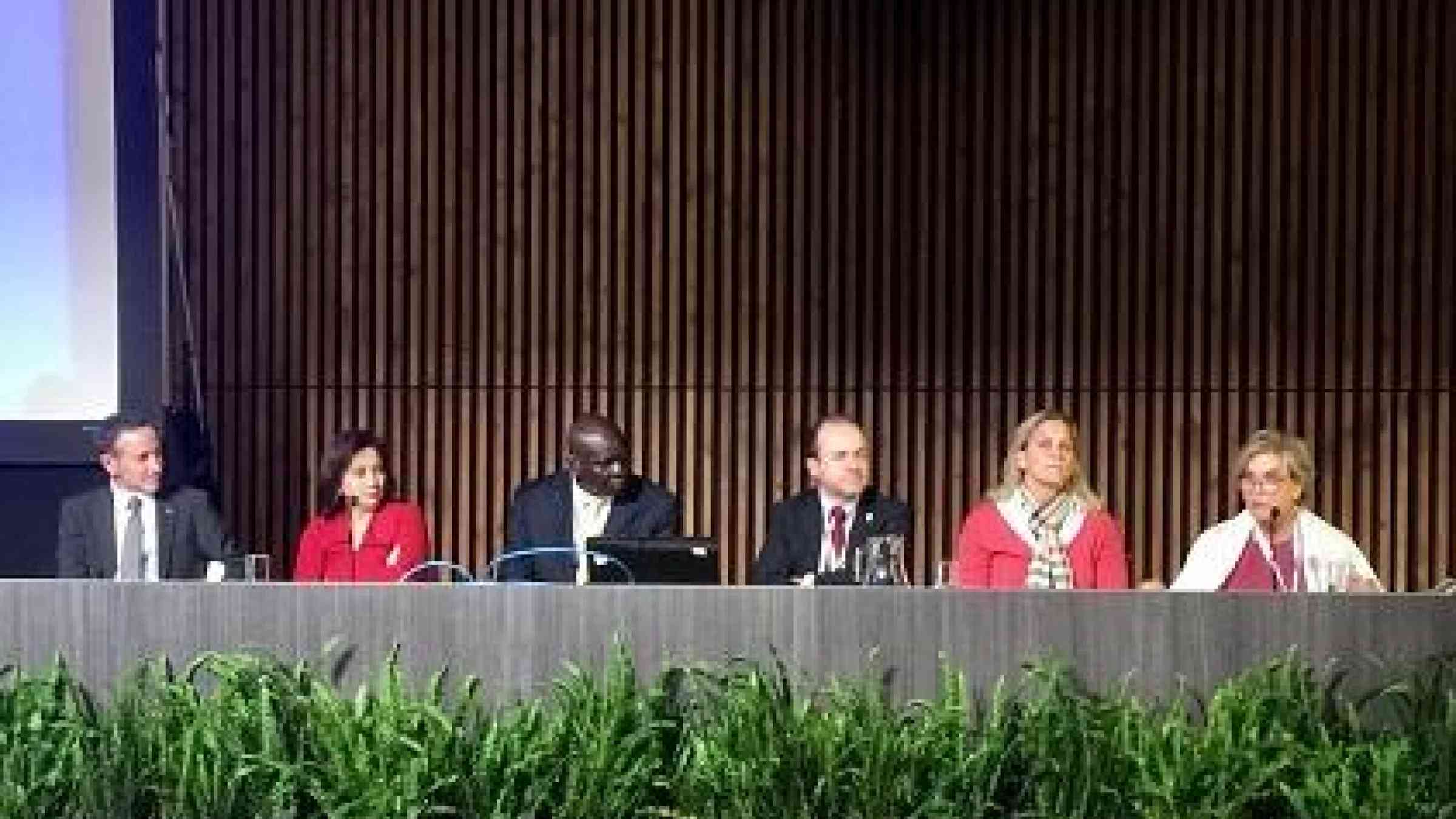Call for innovative resilience financing to support sustainable cities

QUITO, 18 October 2016 – A high level panel has called for innovative approaches to increase financing so that cities become resilient to natural and man-made hazards and other shocks.
The call was issued at the United Nations Conference on Housing and Sustainable Urban Development, also known as Habitat III, which is taking place in the Ecuadorean capital Quito from Monday to Thursday.
Mr. Juan Pablo Bonilla, Manager for Sustainability and Climate Change at the Inter-American Development Bank, said it was time for shift in the approach to financing climate change adaptation and disaster risk reduction.
The international community should “provide concessional financing coupled with policy change in adaptation,” he said, adding that “we need to adopt the same financing innovation used in the past for climate change mitigation, but now for climate change adaptation to bring initiatives to scale.”
Habitat III, which has drawn more than 45,000 registered participants, is scheduled to approve the New Urban Agenda, a roadmap for international sustainable urbanization efforts for future decades.
It comes at a time when the world is increasingly city-based – estimates show that 54 percent of the global population now lives in urban areas. For cities in developing countries, the number of people exposed to cyclone and earthquake risks is estimated to more than double from 2000 to 2050.
UNISDR’s 2015 Global Assessment Report underlined that 60 percent of urban buildings and infrastructure set to be on the planet by 2030 still remains to be constructed. That makes all the more important the commitment in the draft New Urban Agenda to promote the development of infrastructure that is resilient and which will reduce the risks and impact of disasters, especially in slums and informal settlements.
The New Urban Agenda is the final step in a series of interlocking agreements on sustainability struck by the international community since 2015. Together, they form the 2030 Agenda on Sustainable Development.
The first, adopted in March last year, was the Sendai Framework for Disaster Risk Reduction, a 15-year blueprint on curbing global disaster deaths, the number of people affected and the scale of economic losses. It was followed by the Addis Ababa Action Agenda on financing for development, the Sustainable Development Goals and the Paris Agreement on climate change.
“Urban resilience in many parts of the world has been put to the test by a wide variety of disaster events over the last twenty years and often been found wanting. Airports flooded, nuclear power plants threatened, health facilities out of action when they are needed most, schools occupied by displaced people whose homes have been destroyed…all signs that we really do need a new urban agenda and one that is firmly founded on the priorities for action contained in the Sendai Framework for Disaster Risk Reduction adopted by all UN Member States in March 2015,” said Mr. Robert Glasser, Special Representative of the Secretary-General for Disaster Risk Reduction and head of UNISDR.
“Commitment to a New Urban Agenda means ensuring that urbanization, the greatest phenomenon of the 21st century, is carried out in a risk sensitive way and does not sow the seeds of its own destruction in the future,” he said.
“The Sendai Framework urges us to reduce existing levels of risk and to avoid creating new risk. The expansion of our cities and towns is where the great opportunity lies to put this into practice in a way that will be appreciated by future generations,” he added.
Ms. Judith Rodin, President of the Rockefeller Foundation called for more investments in resilience and disaster risk reduction. She noted that investment in resilience pay off, with every dollar bringing a return of 4 dollars. She also called for new partnerships, including between business and governments, to increase financing, and for new approaches to ensure that infrastructure is built to be resilient.
The other on the panel were Philippine Vice President Ms. Leni Robredo, who is also the Housing Minister, Mr. Sam Franklyn Gibson, Mayor of Freetown, Sierra Leone, and Ms. Barbara Kreissler, Director B2G Professional Lighting, from Philips Lighting.